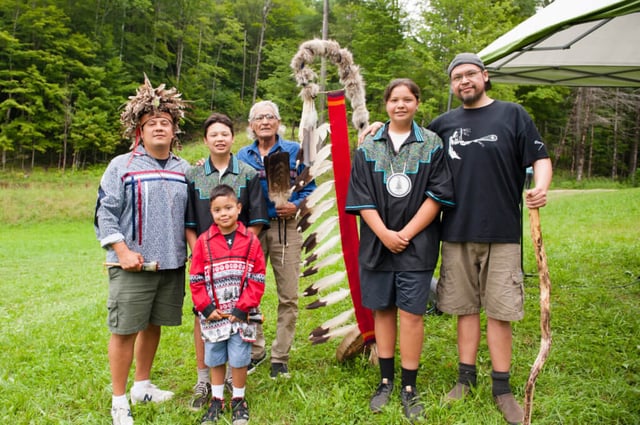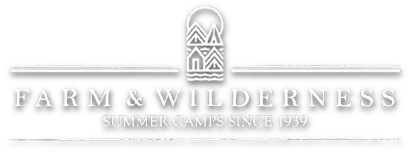 Decades after his summers at Flying Cloud, the executive director of the St. Regis Akwesasne Mohawk Tribe was reading F&W’s camp newsletter while enjoying his breakfast.
Decades after his summers at Flying Cloud, the executive director of the St. Regis Akwesasne Mohawk Tribe was reading F&W’s camp newsletter while enjoying his breakfast.
He was drawn to an article about the F&W community’s concerns over cultural appropriation at Flying Cloud and Indian Brook regarding names, ceremonies and other aspects of camp life.
As the grandson of Bill Cook, also known as “Flying Cloud,” and his tribe’s executive director, Tsiorasa Barreiro (FC ’90, ’91) was eager to help shape these discussions. His feedback eventually led to conversations with Rebecca Geary, his counterpart at F&W, visits to Plymouth with other tribal members and the enrollment of nine Mohawk campers this past summer.
“As a former camper, I didn’t want my grandfather’s investment and love of F&W to be…put in the corner,” he said. “It seemed that this reaction was an overcorrection, perhaps, and could lead to my grandfather’s connection with F&W being reduced.”
What a connection that was. Captain William Rassenes Cook had been a strong influence at Farm & Wilderness in the early days of Timberlake.
During his summer breaks from Dartmouth College, Cook made presentations about Mohawk traditions at many schools, summer camps and in performances, using his stage name of Flying Cloud. He worked for F&W’s co-founder Ken Webb in the early days of Timberlake and, along with members of the Seneca tribe, taught about native life.
“It was part of my grandfather’s drive to educate people about who we really are and move away from the stereotypes. He brought that education, vigor, and enthusiasm for the native crafts, stories, and lore that F&W really took ahold of,” Barreiro said.
Cook was a U.S. Air Force pilot who received a purple heart in 1944, two Distinguished Flying Crosses and other medals while flying in the South Pacific and Philippines theater. Recalled to active service as a captain in the Marine Corps, Cook was killed in 1952 at age 30 when his plane crashed during a training flight in North Carolina.
F&W remembered him when Flying Cloud camp was established in 1965. Today, four generations of Cook’s family and other tribal members have attended an F&W camp.
Barreiro said the relationship between the tribe and F&W may evolve eventually into trips for campers to see the tribal lands, social dances, the local Six Nations Indian Museum and other activities. The goal is to forge personal connections.
“We are a living, breathing culture and that is what I want all the non-native kids to have knowledge of after camp,” he said. “This relationship gives other campers a chance to meet a real Indian and realize we’re not just something behind the glass at the Smithsonian.”




